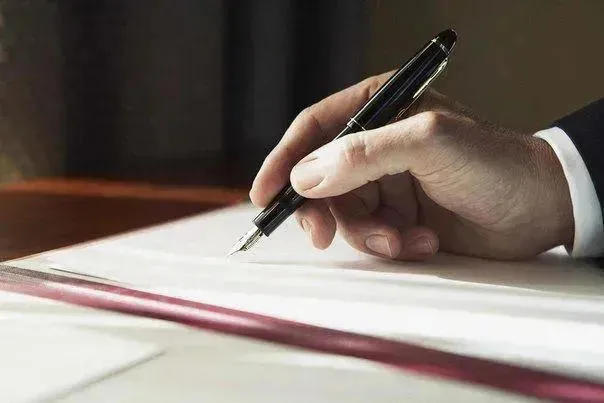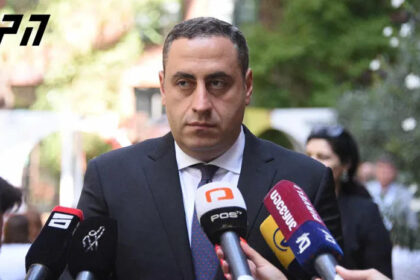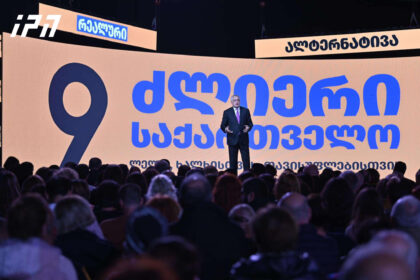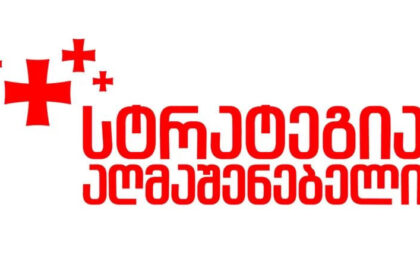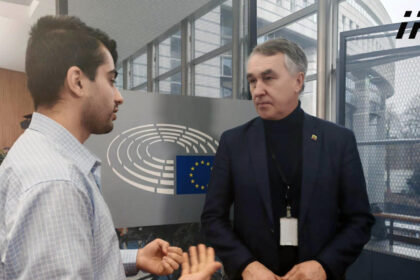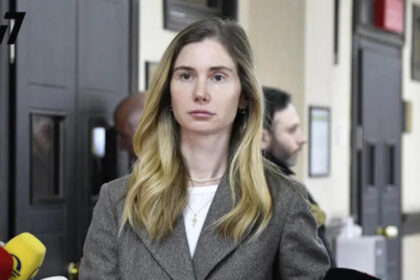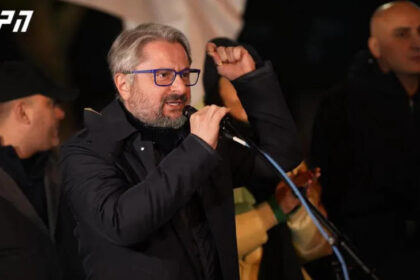As revealed by the work of the investigative commission, in the period following the August 2008 war, the territorial integrity of Georgia was violated in 2019 as a result of the unilateral decision made by the Minister of Internal Affairs Giorgi Gakharia to erect a checkpoint in the village of Chorchana, – the temporary investigative commission of the Parliament writes in its report.
According to the document, “the facts established by the investigative commission on the issue of the construction of the Chorchani checkpoint collectively raise a number of legitimate questions regarding whether there was still an attempt to artificially start a fire in Georgia, as happened in 2008, and what role the former Minister of Internal Affairs Giorgi Gakharia played in the development of events, as well as the head of the National Security Council’s staff, Kakhaber Kemoklidze, who headed the Information and Analytical Department of the State Security Service until July 2019 and for more than a year served as the main negotiator on behalf of the central government at meetings of the Incident Prevention and Response Mechanism.
According to the commission’s assessment, the role of Davit Katsarava (“Anti-Occupation Movement – Strength in Unity”) also requires attention, whose activities in the given geographical area are associated with numerous provocations and incidents of confrontation with the local population (village Chorchana, Atotsi, Abano).
“On August 24, 2019, in the vicinity of the village of Chorchana, Khashuri municipality, in the territory controlled by the Georgian authorities, by the decision of the Minister of Internal Affairs of Georgia Giorgi Gakharia, a standard police checkpoint was erected. At 14:42, the representative of occupied Tskhinvali E.K.-Ev reported this to the State Security Service of Georgia via the hotline and noted that a Georgian flag was raised near the “talc factory”, a road was being built, and armed individuals were mobilized on the site.
The State Security Service verified the information provided by the Ministry of Internal Affairs, after which it activated the hotline and informed the other party at 15:00 that the actions were being taken to ensure security in the territory controlled by the central government.
On August 24, 2019, the investigative commission asked Giorgi Gakharia questions of whether the Ministry of Internal Affairs had informed the relevant state structures and international partners about the establishment of a checkpoint in Chorchana. Giorgi Gakharia stated that “everyone knew everything,” including the EU Monitoring Mission in Georgia and the State Security Service. He also noted that he would consult his immediate superior, the Prime Minister of Georgia, on any issue, although he could not recall in what format the issue of establishing a checkpoint in Chorchana was agreed upon.
This was denied by Giorgi Choladze, who was the head of the office of the Prime Minister of Georgia, Mamuka Bakhtadze, who was interviewed by the investigative commission, and noted that the Prime Minister was not informed in advance about the establishment of the checkpoint.
On July 1, 2025, the investigative commission requested Giorgi Gakharia in writing to provide relevant evidence that would confirm that he had informed the State Security Service of Georgia and the European Union Representation in Georgia in compliance with all necessary procedures, although he did not provide any evidence.
Following the establishment of the checkpoint in Chorchana, the 95th meeting of the Incident Prevention and Response Mechanism was held in the village of Ergneti, Gori municipality, on 29 August. At the meeting, the Head of the EU Monitoring Mission in Georgia stated that it would be good to activate a hotline and share information about such operations in advance. He expressed dissatisfaction with the presence of firing points at the checkpoint. At the same meeting, representatives of the occupying forces demanded the abolition of the established police checkpoint as an ultimatum.
Within the framework of the Incident Prevention and Response Mechanism, the head of the delegation of the occupied Tskhinvali region stated that if the Georgian authorities did not abolish the checkpoint, they would use legal measures.
According to information provided to the investigative commission by the State Security Service, during a break at the same meeting, the OSCE Special Representative for the South Caucasus, Co-Chair of the Geneva International Discussions, Rudolf Mikhalka, and the Head of the European Union Monitoring Mission, Eric Hogg, categorically demanded that the central authorities stop the construction of the checkpoint.
Representatives of the de facto authorities of the occupied Tskhinvali region gave the central authorities a deadline of 06:00 on August 30 to dismantle the checkpoint. Kakhaber Kemoklidze, the Chief of Staff of the National Security Council, who arrived at the site on August 30, noted that “the checkpoint fulfills the mission of ensuring maximum security for everyone on the site. Accordingly, the checkpoint will remain where it is.”
At the investigative commission session, Giorgi Gakharia noted that he made the decision to set up a police checkpoint in the village of Chorchana, as there was alarming information that the occupation forces had prepared everything for borderization in the forest area adjacent to the village, as there were paint marks on the trees in the forest and “they were detaining the population.” However, as a result of verifying the information, it was found that there were no facts of detention in the area adjacent to Chorchana.
In addition, as it was revealed at the session of the investigative commission, before erecting the checkpoint, the Ministry of Internal Affairs had some consultations with the State Security Service, however, the latter was categorically against the establishment of the checkpoint and, in order to prevent possible provocative actions by the occupation forces, considered it appropriate to conduct regular patrols by the Special Tasks Department of the Ministry of Internal Affairs instead of erecting the checkpoint.
In response to the erected checkpoint, in September of the same year, the occupation forces began to build roads in the forest around the village of Chorchana, in the territory controlled by the central government of Georgia, almost a kilometer and a half from the occupation line, erect checkpoints and South Ossetian flags. They dug trenches up to 2 km long, planted green poles for more than 1 km, and began to lay barbed wire.
As a result, up to 100 hectares of forest came under the control of the occupying forces, and 5 new Russian checkpoints were established in the territory previously controlled by the central government of Georgia”, reads the document.
Investigative Commission: Georgia’s territorial integrity was violated in 2019 as a result of Giorgi Gakharia’s unilateral decision to erect a checkpoint in the village of Chorchana
